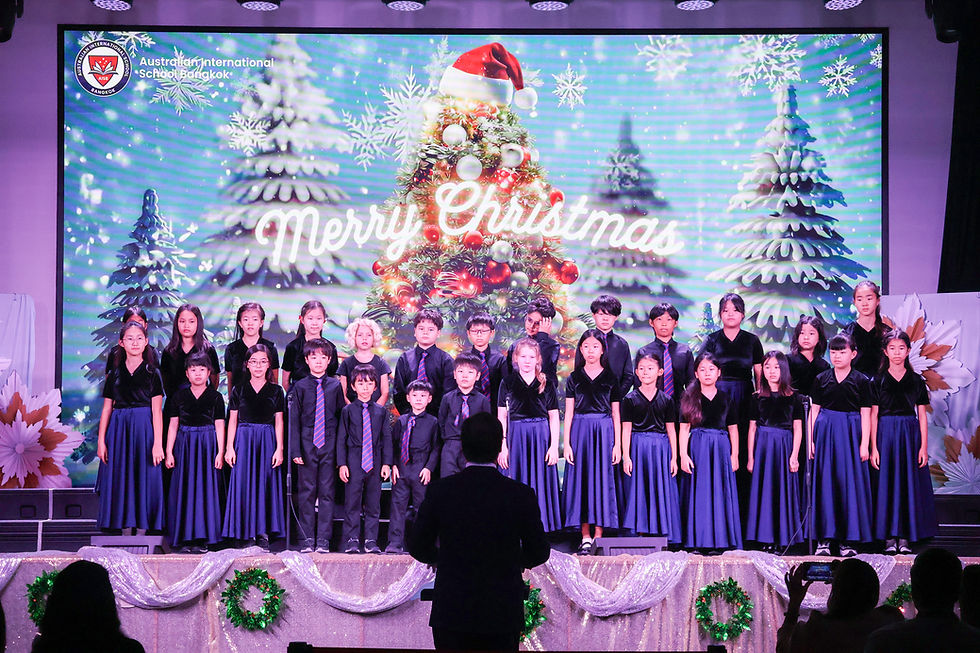International Week Celebration - Soi 20 Campus
- AISB News

- Oct 17, 2022
- 2 min read
Written by Ms Shelby F. Aomjan, Kindergarten Teacher and Coordinator
Cultural Diversity Celebrations in schools provide a range of opportunities for children and families to celebrate differences, as well as promoting different cultures, racial and ethnic groups within our community. Staff support children to show respect for diversity by celebrating different events and activities, strengthening self-identity, and promoting inclusivity. Throughout the year AISB celebrates culturally diverse calendar events, such as Loy Krathong, Christmas, Australia Day and Songkran, just to name a few.
Our first cultural celebration this year was our AISB 2022-2023 International Week celebrations at the Soi 20 Campus. Children were encouraged to wear their national dress or flag colours in parades, bring home cooked dishes from around the world, share their home and travel experiences with their peers, and bring books from home in all languages.




We were pleased to welcome parents on campus to participate in a few of these celebrations and further develop our school culture and community. To further broaden children’s view of the world and their place in it, each class also had a focus country which they learned about. Classes explored the foods, art, music, history, sports and flora and fauna of countries such as Egypt, Brazil, France, Kenya and many more.

At AISB we know that culture is embedded in one’s sense of identity. A child’s sense of Belonging, Being and Becoming (EYLF, 2009) plays an important role in children understanding themselves, their identity, as well as acknowledging and celebrating that other people may be different. We aim for our celebrations large and small to support and encourage children’s growing sense of self and belonging.
Links to the Early Years Learning Framework Outcome 2 - Children are connected with and connected to their world
2.1 - Children develop a sense of belonging to groups and communities and an understanding of the reciprocal rights and responsibilities necessary for active community participation.
2.2 - Children respond to diversity with respect
2.3 - Children become aware of fairness
























